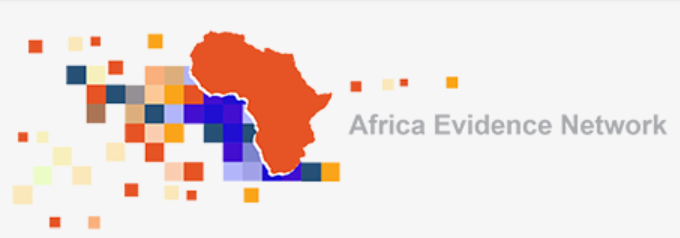
Ms Adeline Sibanda speaking at the Evidence 2016 conference in Pretoria, South Africa
Building evaluation capacity can be achieved in a number of ways: from conferences where delegates can exchange views and discuss salient topics; to journals where new ideas and methodologies can be shared and critiqued in academic fashion; to tailored training for evaluation professionals and the evaluators of the future.
The African Evaluation Association (AfrEA) was set up to build evaluation capacity across Africa. Founded in 1999 by UNICEF to combat the low evaluation capacities on the continent, our vision is an Africa rooted in a culture of learning and evaluation for equitable and sustainable development. It is this vision that has driven, and continues to drive our various approaches to capacity building.
Networks are crucial for learning, sharing of opportunities and knowledge. In this regard, AfrEA, with a network of 33 member associations, six institutional members and over 650 independent evaluation experts, aims to use its African and global networks’ capacity to improve development efforts in Africa. For this, an active email list is used for dissemination of news and sharing of knowledge.
Conferences remain pivotal to AfrEA’s capacity building drive. Since its conception, AfrEA has organized and hosted seven biennial conferences across Francophone and Anglophone Africa. The last conference was in Yaoundé, Cameroon, with over 500 participants. These conferences aim to facilitate learning exchange between international evaluators and that of the AfrEA network.
The eighth AfrEA conference will be held in Kampala, Uganda, 27th-31st March this year (8th International AfrEA Conference 2017) focusing on “Evaluation of the Sustainable Development Goals (SDGs): Opportunities and Challenges for Africa”. While the call for papers has now closed, you are very much invited to attend the conference: There will be hands-on pre-conference capacity building workshops around evaluation methods and techniques. The conference itself will feature insightful presentations and debate about ‘Evaluation – Made in Africa’, ‘Evaluating Climate Change’ and ‘Impact Evaluation’, among many other strands. You can register here and find out more about the conference’s programme, bursaries and accommodation.
The peer-reviewed African Evaluation Journal (AEJ) contributes to the improvement of monitoring and evaluation theories and practices within institutions and businesses in Africa. To date, four editions have been published. CLEAR Anglophone Africa is putting together a special edition on “Evaluation Capacity Development: Strategies, Designs, Procedures & Methods Made in Africa”. The growth in the uptake of the Journal is astounding with the number of downloads increasing by almost 800% between 2013 and 2015. The Journal’s largest audience is from the African continent, reflecting the significant interest in building knowledge and gaining expertise across Africa.
Targeted institutional and evaluation capacity support. African evaluation organisations and individuals are often not only in need of support to improve their understanding of, exposure to and mastery of evaluation techniques and tools, but also often require support to become institutionally robust in their processes. Many evaluation organisations are unregistered, do not have formal governance systems, have very limited resources, and have limited financial management. AfrEA develops and implements tailored training and support programs for its members to help them becoming not only first-class evaluators but also first-class institutions.
About the author
Ms Adeline Sibanda is the African Evaluation Association (AfrEA) Interim President and Southern Africa Regional Representative on the AfrEA Board. She is the founder and Managing Director of Troparg Consultancy Services and has over 24 years of experience in international development, leadership and evaluation.